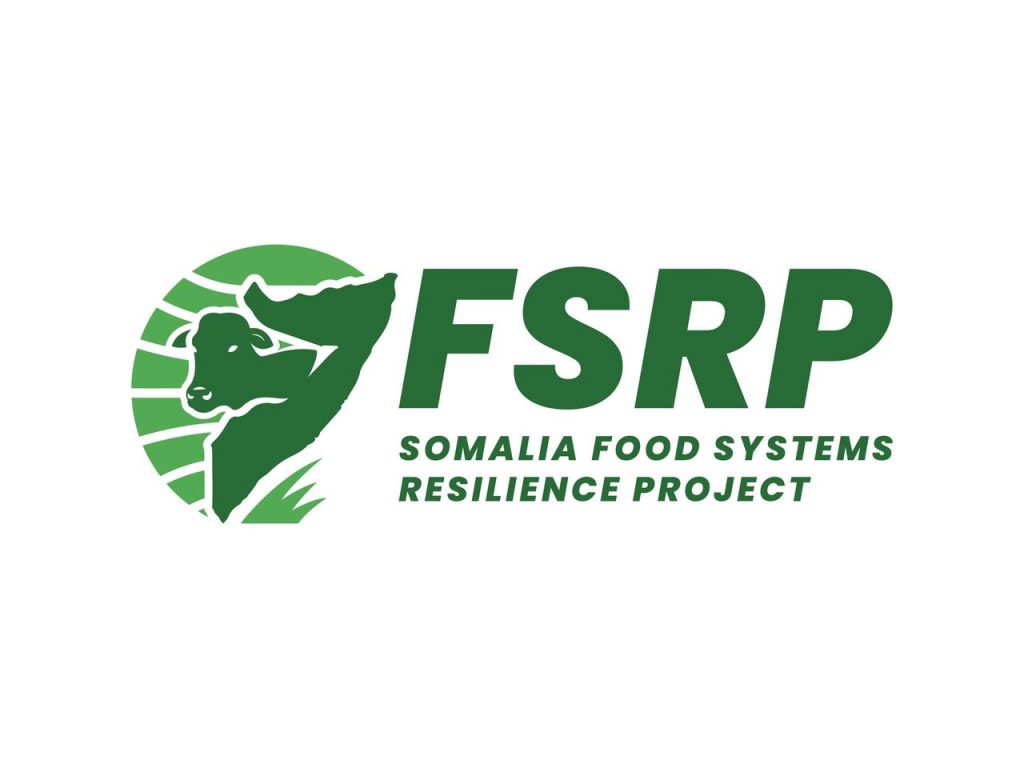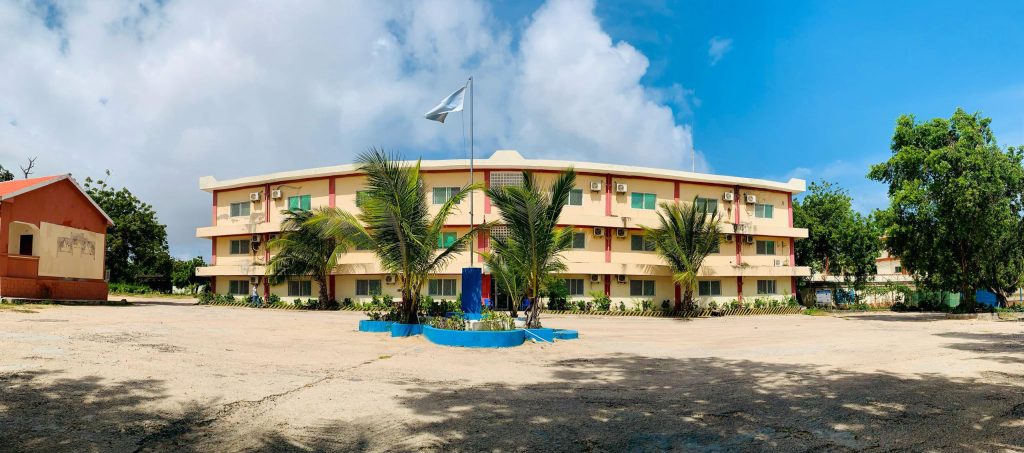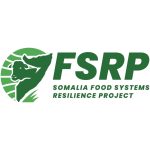1. Introduction
1.1 Background
Agriculture is the backbone of Somalia’s economy, contributing around 70% of GDP and employing over 80% of the population, while also accounting for about 50% of export. ¹ Despite its importance, the sector faces systemic challenges including climate shocks, weak infrastructure, and low access to quality inputs.
Seed is the most critical input in agriculture, contributing up to 30–40% of yield gains when high-quality improved seed is used. ² In Somalia, however, the majority of farmers continue to rely on farmer-saved seed or informal market supplies; estimated at over 85% of seed used nationally; which are often of poor quality, genetically mixed, or unsuitable for local agro-ecologies. ³ This has constrained agricultural productivity and farmer resilience to drought and other climate-related shocks.
The Ministry of Agriculture and Irrigation (MoAI) and Federal Member States (FMS) are committed to breaking this cycle by ensuring, farmers receive certified, climate-resilient seed varieties. To achieve this, MoAI seeks to engage a qualified Seed Supply Company capable of reliably procuring, processing, certifying, packaging, and delivering improved seed to MoAI and FMS warehouses. MoAI will then manage the onward distribution to farmers as part of national programs.
1.2 Ugbaad The Ugbaad Project (GCF-Funded)
The Climate Resilient Agriculture in Somalia (Ugbaad) Project is a seven-year program (2024–2031), financed by the Green Climate Fund (GCF) with a grant of USD 79.7 million and implemented by FAO in partnership with the Federal Government of Somalia. Ugbaad is Somalia’s first GCF-funded, single-country investment dedicated to strengthening agricultural resilience.
The project’s development objective is to enhance climate-resilient livelihoods and food security through:
- Restoration of 40,000 hectares of productive landscapes.
- Rehabilitation of irrigation canals and rural access roads.
- Improved access to water for over 900,000 people.
- Climate information services reaching nearly 1 million farmers and pastoralists.
- Strengthened institutional capacity to deliver climate-smart agriculture and seed system reforms.
The seed supply initiative under this ToR falls within Ugbaad’s component on sustainable input access and seed system strengthening, designed to ensure Somali farmers benefit directly from certified, climate-resilient seed varieties while building long-term demand for improved seed.
1.3 Rationale
Somalia’s agricultural sector faces compounding pressures: droughts, pest outbreaks, soil degradation, and climate variability. Climate-resilient varieties exist but are not widely accessible due to weak seed multiplication systems and fragmented distribution channels. Farmers often pay high purchase for uncertified seed of questionable quality, undermining yields and farmer trust in the seed system. Therefore, engaging a seed production company to deliver certified seed production and distribution services will address these bottlenecks. Through applying rigorous quality assurance, maintaining varietal purity, and strengthening distribution channels, the company will increase the availability of improved varieties.
1.4 Purpose of this TOR
The purpose of this ToR is to procure the service of a qualified Seed Supply Company capable of delivering certified, high-quality and climate-resistant seed to federal member states offices of Southwest, Hirshabelle & Jubaland (Jowhar, Kismayu, Baidoa, Beletwein and Afgoi) for onward distribution to farmers.
2. Objective of the Assignment
- Overall Objective
The overall objective of this assignment is to strengthen agricultural productivity and resilience in Somalia by improving farmers’ access to certified climate-resilient seed varieties. This will be achieved through the reliable supply of quality-assured seeds, enabling farmers to improve yields, withstand climate shocks, and progressively transition away from dependence on uncertified farmer-saved seed.
- Specific Objectives
- Procure certified seed of agreed climate-resilient varieties from accredited production sources.
- Ensure compliance with SARIS and ISTA quality standards (purity, germination, and moisture).
- Package seed in farmer-friendly, tamper-proof bags with clear labeling.
- Deliver seed to MoAI central and FMS warehouses within agreed timelines.
- Provide all certification, inspection, and traceability documentation.
- Support MoAI awareness efforts by including farmer-friendly information leaflets on proper seed use and benefits.
3. Scope of Work
The contracted Seed Company will undertake the following:
a) Procurement & Quality Assurance
- Supply certified seed that has been produced during the Gu season, ensuring availability in time for distribution.
- Provide only seed lots that have been officially certified by SARIS through field inspections and laboratory testing.
- Ensure all seed lots fully comply with ISTA protocols and the Somali National Seed and Plant Varieties Law
- Submit certification records and test results (germination 85-95%, purity 99%, and moisture content 12%) for approval prior to delivery.
b) Packaging & Labeling
- Package seed in 5kg & 10kg to meet the needs of smallholder farmers and farmer groups.
- Use tamper-proof bags clearly labeled with variety name, lot number, seed class, germination rate, certification status, and supplier details.
- Include farmer-friendly information leaflets with each package, highlighting the benefits of improved seed and providing basic planting guidance.
c) Delivery & Handover
- Deliver certified seed to designated MoAI/FMS warehouses in the following locations:
- Afgoi – Maize as main crop
- Jowhar – Maize as main crop
- Beletwein – Maize as main crop
- Kismayo – Maize as main crop
- Baidoa – Sorghum as main crop
- Each farmer will receive 1 bag (10kg) of a cereal (Maize or Sorghum, depending on location), and 1 bag (5kg) of Cowpea.
- All deliveries must be completed no later than September 20, 2025, to ensure availability before the onset of the Deyr rains.
- Provide delivery notes, SARIS certificates, and batch records with each consignment.
- Ensure proper transportation and storage conditions to preserve viability and quality.
d) Collaboration with MoAI
- Coordinate with MoAI and FMS authorities to align deliveries with planting dates.
- Share detailed supply data (volumes, varieties, lot details) to facilitate distribution and farmer reporting.
2 Abate et al. (2025). Seed Systems and Yield Improvement in Sub-Saharan Africa. Springer Nature. Available at: link.springer.com.
3 UNDP (2024). SCALA Country Report: Somalia – Scaling up Climate Ambition on Land Use and Agriculture. United Nations Development Programme. Available at: undp.org
Submission Instructions
- Format: Submit as a single PDF or a single ZIP (clearly labeled folders).
- Email: [email protected] CC: [email protected]
- Email subject line: Application – [Tender/Reference No. if any] – [Company Name]
- Deadline: 15 September 2025, 23:59 EAT (UTC+03:00).
- Validity: Proposals should remain valid for 90 days from the deadline.
- Clarifications (optional): Direct any queries to the same email no later than 3 days before the deadline.
Incomplete or late submissions may be rejected without further consideration.





